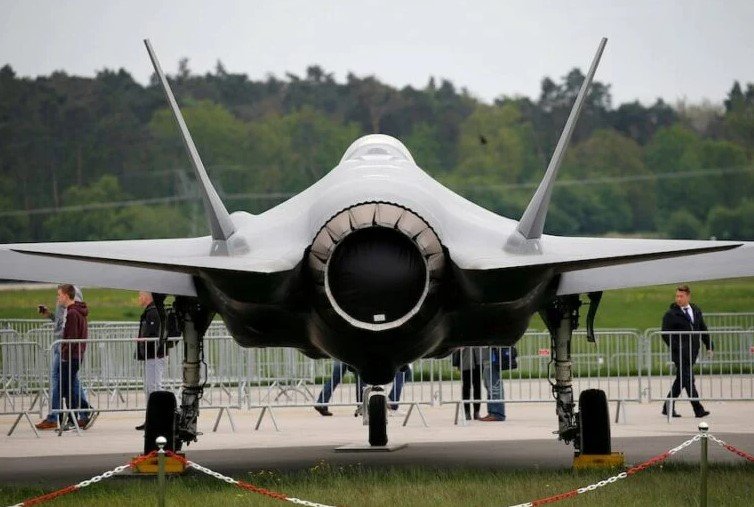Tensions are peaking in the Middle East once again. With diplomatic channels between Washington and Tehran hanging by a thread, Israeli military action is no longer just a distant possibility — it’s a pressing concern for U.S. officials.
The Biden administration — wait, correction — the Trump administration is now reportedly on edge, as chatter intensifies over a possible Israeli move against Iran’s nuclear sites. All this, while negotiations aimed at curbing Iran’s nuclear ambitions teeter dangerously on the edge of collapse.
Israel’s Patience Runs Thin
Israeli Prime Minister Benjamin Netanyahu hasn’t exactly been known for patience when it comes to Iran.
Officials close to the matter say Israel is now ready to act alone if the United States fails to lock in a deal with Iran. The thinking, reportedly, is that if Tehran gets any closer to nuclear breakout capability, Tel Aviv won’t wait for a green light from Washington.
Now, whether this is just strategic saber-rattling or the real deal — that’s the billion-dollar question. But one thing’s clear: Israel’s military has been preparing behind the scenes.

U.S. Moves Troops, Closes Doors
In Washington, nerves are clearly fraying.
President Donald Trump, speaking on Wednesday, acknowledged the rising tensions bluntly. “It could be a dangerous place,” he said of the region, confirming reports that U.S. personnel are being moved out of hotspots like Iraq and Iran.
Some specifics from government sources:
-
Selective evacuations: State Department has authorized certain embassy staff to leave Baghdad.
-
Military dependents: Pentagon allowing voluntary departures from U.S. bases in the region.
-
Troop adjustments: Quiet repositioning of forces reportedly underway.
One senior defense official, speaking anonymously, said, “We don’t want to be caught flat-footed if things go south overnight.”
What’s Holding Up the Talks?
The talks between the U.S. and Iran aren’t entirely dead, but they’re gasping. Trump has doubled down on the one point that seems to unite most of Congress: Iran must never be allowed to build a nuclear weapon.
But getting Tehran to agree to meaningful limits on enrichment — or inspections for that matter — has been like squeezing water from a rock.
Earlier optimism from diplomats faded fast over the past two weeks, with Iranian negotiators reportedly hardening their stance. Add to that the rise of hardliners back home in Iran, and you’ve got a messy diplomatic deadlock.
And the risk? If talks fail, there’s no middle ground. Either someone blinks or something blows up.
A Powder Keg Situation
The region’s already on edge after last year’s Israel-Hamas conflict. No one really wants to see that fire spread.
Military analysts say a preemptive Israeli strike on Iran’s nuclear infrastructure — particularly sites like Natanz or Fordow — could ignite a broader regional conflict. Think Hezbollah retaliating from Lebanon. Think Iranian missiles targeting U.S. bases in the Gulf.
And let’s not forget the Strait of Hormuz — one of the world’s most vital oil arteries — which Tehran has previously threatened to block.
Here’s a quick look at what could follow an Israeli strike:
| Event | Immediate Consequence | Broader Risk |
|---|---|---|
| Israeli strike on Iran | Destruction of enrichment sites | Iranian retaliation, global oil shock |
| Iran hits U.S. bases | American counterstrikes | Regional war escalation |
| Hormuz blocked | Oil prices skyrocket | Global market volatility |
Short version: no one wins. Everyone loses.
Trump’s High-Stakes Messaging
President Trump’s recent remarks seem carefully calculated. On one hand, he insists the U.S. won’t tolerate a nuclear-armed Iran. On the other, he’s making it clear he doesn’t want to be dragged into another Middle Eastern war.
One sentence from his speech stood out: “We support Israel, but we also don’t want war — not another one.”
That’s not just rhetoric. That’s a real tightrope.
The administration’s balancing act is tough — reassure Israel, deter Iran, and protect U.S. interests, all without sparking a regional conflict.
Is This Just Pressure Politics?
It’s entirely possible — maybe even likely — that the Israeli threat is a calculated move to pressure Washington and Tehran into striking a deal.
A kind of high-stakes poker. Flash the cards, bluff a little, maybe force someone’s hand.
But there’s always the risk the bluff becomes reality. And in the Middle East, things can turn on a dime.
A former U.S. intelligence officer put it bluntly: “Once the bombs start falling, no one’s in control anymore.”
